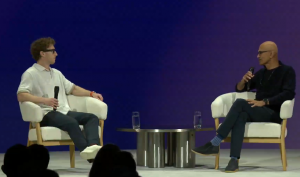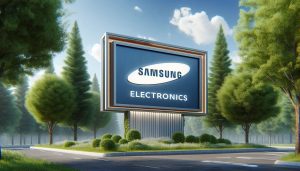Intel Acquisition of McAfee Making Waves
The announcement of the acquisition of security software producer, McAfee, by semiconductor industry megalith, Intel, has generated mixed reviews. From the security software sector the thoughts are generally positive; while security analysts retain some reservations about the purchase.
Intel makes their case for the acquisition quite solidly in an interview published on CNET where Intel exec, Renee James, describes what this will mean for the industry as a whole:![]()
Intel chips and McAfee technology, how do they fit together?
James: Security can be enhanced with hardware. You can have a software-only solution but it can be made more robust in conjunction with hardware. That combined value proposition is one of the sources of motivation for this acquisition. We can actually add enhancements into our silicon that can offer the consumer more protection. There are a number of opportunities where hardware could assist the software, either preventing attacks or recovering from attacks, or hardening the software against certain attacks. Those are the kinds of things we think about. McAfee will continue today to sell all of their products in the open market, across platforms. But they may have a line of enhanced security products that take advantages of silicon features. But some of this is out several years. We need to set the proper expectations.
It is certainly true that software products benefit greatly from having better access to the processor. In fact, a great deal of the struggle between Intel and AMD over the years has been about providing different types of processor power for different applications: multimedia, business, raw calculation, etc. And, upon merging McAfee with Intel the security software developers will have distinct insights into Intel processors that will greatly strengthen the software’s ability to do it’s job.
But, how do other security software companies feel about this? According to an article over at TechEYE the acquisition is looked upon quite favorably,
Although Kaspersky said it didn’t normally comment on competitor ventures, it described the venture as "positive news for the market," adding that it reinforces the fact that IT security is "among the most important issues for both the B2B and B2C sectors".
Trend Micro added that the decision was "a clear statement to the industry and investors that security is absolutely fundamental to future technology services and products."
Panda Securities two pence is that the buy "is clearly elevating the importance of IT security to new heights within the computing industry."

Indeed, with the ubiquitous nature of computers, mobile computing devices, and their kin, software security is an extremely big deal in the market today. Viruses, worms, identity theft, scams, fraud… The list goes on of threats that the general population and corporate interests face from doing business in the Information Age. Intel acquiring McAfee, much of the security sector argues, will show businesses that security is important and drum up more revenue for them.
From the same article, however, security analyst firms aren’t so sure about how well this buy will actually affect the industry,
British insecurity outfit Sophos also had some reservations. Graham Cluley, senior technology consultant at the security company, told us that although he believed that the Intel/McAfee deal reinforced the view that the security industry is an attractive growing market for investors, he warned that: "infrastructure vendors acquiring security vendors is not guaranteed to succeed.
[…]
"It’s also worth bearing in mind that we’re seeing more and more threats taking place in the Internet (think recent social networking attacks on sites like Facebook) rather than close to the CPU. In these increasingly common attacks, chip-based security will not offer any advantages."
While the acquisition will allow McAfee to increase on-computer security, there are still a great deal of threats coming from flawed software and the Internet itself. This, however, does not necessarily throw a damp blanket over the whole affair, but is probably something to keep in mind when watching how this deal will affect the security software industry.
Finally, we have some thoughts about why the acquisition fits nicely with Intel’s mission combined with McAfee’s from McAfee themselves,
McAfee’s strategy of protecting the multitude of devices such as ATMs, printers, digital copiers, and cars fits with helping organizations better manage and protect the IP enabled mobile and embedded devices that run Wind River embedded and mobile software. This also dovetails nicely with McAfee’s acquisition of Solidcore, a leader in dynamic whitelisting technology that already provides protection for millions of embedded devices.
As Intel’s technology appears in more than just computers but also mobile devices and business devices, this sort of melding of influences could prove to be an extreme boon to industries not usually seen as affected by security.
It’s early yet, but most reactions look positive.
A message from John Furrier, co-founder of SiliconANGLE:
Your vote of support is important to us and it helps us keep the content FREE.
One click below supports our mission to provide free, deep, and relevant content.
Join our community on YouTube
Join the community that includes more than 15,000 #CubeAlumni experts, including Amazon.com CEO Andy Jassy, Dell Technologies founder and CEO Michael Dell, Intel CEO Pat Gelsinger, and many more luminaries and experts.
THANK YOU













